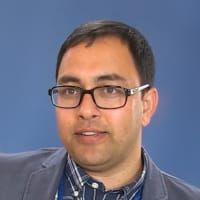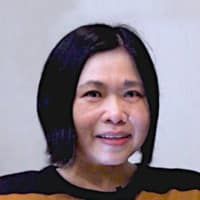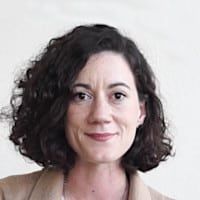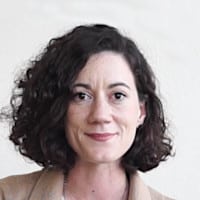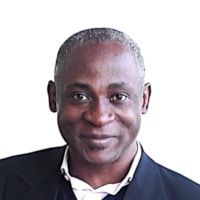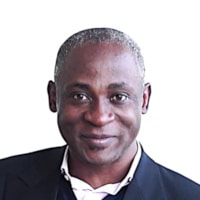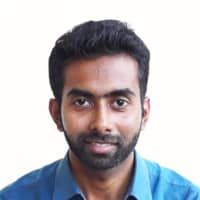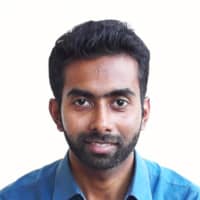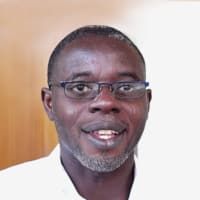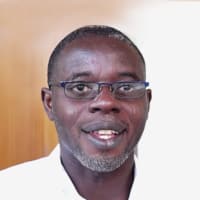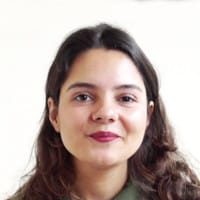Meghnath Dhimal

Dr. Meghnath Dhimal started his career as an Environmental Health Research Officer in 2005 and has been working as a Chief/Senior Research Officer since 2010 at the Nepal Health Research Council (NHRC), Government of Nepal. He completed his PhD in Geo-sciences (Environmental Health Sciences) from the Goethe University in 2015, and his Master Degree in Environmental Sciences from Tribhuvan University, Nepal, in 2004. For his PhD studies, he received a German Academic Exchange Services (DAAD) scholarship. After the completion of his PhD study, he also worked a Guest Scientist at the Institute of Occupational Medicine, Social Medicine and Environmental Medicine, Goethe University, Frankfurt am Main, Germany from 2016-2018.
Achieving both practical and theoretical advances in environmental and public health research, Meghnath has led research projects on environmental and climate change, non-communicable diseases, neglected tropical diseases and health systems research in Nepal. Recognizing his contribution in the field of climate change and health, he was awarded with the “Young Scientists Award of the Year 2015” by the Nepal Academy of Science and Technology (NAST) in 2015. He also received the Nepal Bidhyabhushan “Ka” Award of the Year 2016 by Rt. Hon President of Federal Democratic Republic of Nepal in 2016. He is a Member of the Research Committee, Institute of Medicine, Tribhuvan University, Kathmandu (2016-2019); Member of the Global Young Academy (2017-2022); an Expert Member of Public Health and WASH Thematic Group of National Adaption Plan formulation Process, Ministry of Health, Government of Nepal (Since 2016) and Member of Steering Committee on Urban Health Initiative (Since 2018). He has made substantial contributions to developing environmental health and climate change programmes and policies. In Nepal examples include health sector implementation plans and strategies, NAPA, LAPA, PPCR, Climate Change Policy 2011, H-NAP and NAP development in Nepal.
Meghnath has also served the World Health Organization (WHO) in the capacity of Temporary Adviser as well as in the capacity of Climate Change and Health Expert. He has published more than 100 peer-reviewed journal papers, essays, technical reports and articles in the popular press. His research is featured in numerous scientific and media outlets including the Science Daily and Medical Xpress. His research interests include climate change and health, environmental and public health, neglected tropical diseases, non-communicable diseases and gender perspectives on human health.
Find our more here:
A conversation with Dr Meghnath Dhimal.
How to reduce the opportunity gap between developed and developing nations? More specifically, how to address existing disparities in terms of resource allocation, education and economic means? And how to solve major environmental threats to global health, including non-communicable diseases spread by mosquitoes, contaminated water or air pollutants? Dr. Meghnath Dhimal posits that the answers lie in international networking and interdisciplinary collaboration—between scientists and politicians, the environmental and medical communities, Northern and Southern hemispheres, and so forth.
Dr. Dhimal, a Senior Research Officer with the Nepal Health Research Council (NHRC) and the global health chair at the Global Young Academy (2017-2022), has made substantial contributions to environmental health policies and climate change programs. In addition to his advisory role at the World Health Organization (WHO), he was awarded the Young Scientist of the Year award in 2015 by the Nepal Academy of Science and Technology.
In this far-reaching conversation, Dr. Meghnath Dhimal, a Senior Research Officer with the Nepal Health Research Council (NHRC), reflects on his upbringing in rural Nepal, where disease patterns have significantly shifted since. He talks about being a passionate advocate for combining health and environmental issues in order to better tackle our global burden of disease.
“The major health risk factors at the moment are environmental factors spread by mosquitoes, contaminated water and air pollutants. So until and unless we bring both sectors together, we cannot solve this issue.” – Dr. Meghnath Dhimal
Dr. Dhimal also paints a very clear picture of the opportunity gaps and existing disparities between developed and developing nations. While the former have the bulk of the world’s resources at their disposal to handle but a fraction of global health problems, it’s the other way around for developing nations.
“There is a disparity in terms of resource allocation, in terms of education, everything. We need to change this. And I think we need political reform. It will be a political decision, not a scientific one.” – Dr. Meghnath Dhimal
The scientist calls on his Nepali colleagues abroad to return home and pass on their scientific expertise to future generations, as well as generate data and research about the “developing world,” for a change. He also implores viewers to embrace more holistic solutions to the regional, national and global health challenges we face.
“Most of the problems can only be solved through networking and collaborations. So we need South-South collaboration, South-North collaboration, North-North collaboration and ultimately, we need to maintain peace in the global community.” – Dr. Meghnath Dhimal

Welcome to our series, Researchers with a Passion. My name is Nerina Finetto, and my guest today is…
I am Meghnath Dhimal. I’ve worked in Nepal as an environmental health scientist for the past 15 years. I am also a member of Global Youth Academy, and I’m currently chairing the Global Health Group at Global Youth Academy.
Thank you so much for joining me. What is your research and why did you go for it?
Basically, I was brought up in rural Nepal. I had a curiosity about how modern health is changing for people since my early childhood. Basically, my work is about how these changing environments or environmental factors affect human health. And how we can prevent disease, infections, et cetera, from environmental and social factors. So my research focuses more on the environmental, social and cultural factors, which are linked to the behavior of people. Because if you see the global burden of disease, more than 80% of diseases are attributed to environmental risk factors. And basically, especially in the developing country where I come from, diseases like diarrhea, cholera and respiratory illnesses are common now. And the major risk factors for this are environmental risk factors. Like most developing countries, people still use solid biomass fuel, which is the major cause of respiratory illnesses like pneumonia, chronic obstructive pulmonary disease, cardiovascular disease, et cetera. Now, in urban areas, pollution levels have also increased, which is a major threat for non-communicable diseases, like cardiovascular disease.
To prevent these things, we need to know who are the people at risk. We need to generate the evidence and we need to guide our policymakers. In the present day, all the developing countries are facing a big problem. I’ll say even developed countries, from the climate perspective. And many infectious diseases were the declining trend due to massive interest in the force, but now due to this climate change, the diseases of the lowlands are now sitting towards the hill and mountains. So that is a big threat for a mountainous country like Nepal. And also other neighboring countries like India, China, Bhutan, et cetera. So that means we are facing a new challenge. To address this, this means we have to address the environmental risk factors. Maybe climate change, maybe policy, maybe waste management, it may be water policy, or it may be any noise pollution or any radioactive substance. So part of this, we need the interdisciplinary research. We need to involve the scientists who have a background in social sciences, natural sciences, health sciences, medical science, and we need to use the holistic approach to solve these national problems, regional problems and the global health problems.
What are the challenges that you see for your country and how do you see it related to the global community?
I was brought up in rural Nepal, which is located around 1,500 meters above sea level and I was born in 1981. That means almost 38 years ago. I spent eight years there, but even in these eight years, I saw a lot of changes. And I visited later on and more changes. Like when I was growing up there, I used to drink water that was safe, no diarrhea and at that time there were no mosquitoes. But now people have to use the bed nets, or they’ll suffer from the diseases like dengue, chikungunya or malaria. So in this way, the disease pattern has changed. In that timeline, people are talking about non-communicable diseases. These are the problems of rich people, of the developed world. But now, in each family, there are people with non-communicable diseases – maybe cancer, diabetes, respiratory illnesses or maybe suffering from infectious diseases… Diarrhea, cholera, or maybe suffering from injuries or trauma.
That means we are suffering from people’s vulnerabilities. And if you see the risk factor for this, then it comes in our environment. The water is contaminated, air is polluted, and in the agriculture system, we’re making massive use of pesticides. So there is exposure to pesticides, exposure to pollutants. And then people are getting more and more diseased. That may be both infectious diseases as well as,non-infectious diseases. So this brought something to my mind: why not do work on this? What is the evidence? Most of the evidence comes from Europe and America, but we as scientists from the least developed countries and developing countries, we have to generate our own evidence. And we have to think globally, but we need to act locally.
As per this, we need the local-level evidence. So that encouraged me to work on an issue like climate change and infectious diseases, to act upon it. Luckily, I got an opportunity for my PhD to study in Germany under the DAAD Fellowship, German Academic Exchange Services. I completed my PhD in 2015 from Goethe University, Frankfurt am Main, Germany. I went back to Nepal and continued my job. Because before coming to Germany, I was in a position like Environmental Health Research Officer and later the Chief of Research Divisions. So that helped me develop networking at the national, regional and global levels. And recognizing my contribution in the field of neglected tropical diseases and climate change, the senior Academy of Nepal, Nepal Academy of Science and Technology, awarded me the Young Scientist Award in 2015, which also encouraged me to work harder in this field.
In 2017, I got a very prestigious Nepal Bidhya Bhusan from the president of Nepal. It is a very prestigious award. And that also encouraged me to work in this field. The same year, the Global Youth Academy approved my application based on my contribution to science and society as a member of the Global Youth Academy. And from 2018, my colleague appointed me as a chairperson of the Global Health Group. So repeatedly, I’m getting the achievements and I’m also contributing to society. And for the past two years, I’ve attended the World Health Summit. Not only am I attending but Nepal is also doing the national summit of health and population scientists because we have to learn from the global community, but we have to apply. We have to bring change in the national scenario. Now, I’m in the high level committee, steering committee, technical committee formed by the government of Nepal. I can give science advice on where the evidence is needed. And we need to use the evidence to formulate our policy, plans and programs, so that we can get maximum benefit from our limited resources. That is my motto.
Beside Nepal, I regularly serve as climate and health expert at the WHO, World Health Organization, and I have already contributed in the Maldives to develop their health national adaptation process (H-NAP) to climate change. And in East Timor, which is a small island country, to develop their H-NAP. And in my own country, where I started a H-NAP for climate change. Because we have to be prepared and these are not limited to the country. These action plans and such assessments need to be done by each country. And it has been passed by the Male Declaration, which was held in Male in Maldives in 2017. These are the regional achievements.
Beside that, based on my paper, the United States’ CDC has also sent their travel notice regarding the zika virus. As a figure in the zika virus. like they have advised pregnant woman not to travel up to 2,000 meters where the zika virus is ongoing. One of the criteria for their decision was my paper, which was published in PLOS Neglected Tropical Diseases. So in this way, we can start from the local level and those good practices can go to the regional level and also the international level. In this way, I’m just contributing to global society. As a global citizen and as a scientist from one of the least developed countries, my mission is not to work only in a small country, but to contribute to the global society.
You work as an expert bringing questions about health and environment together. Was this a new approach for your country?
I did my graduate degree in 2004, and then I joined the Nepal Health Research Council, which is the apex body of the government of Nepal, to promote health research in Nepal. Very rarely are there positions in the health sector with a background of the people in Environmental Sciences. And the big challenge for me was that, if I have the issue of let’s say, air pollution, the health sector will say, ‘no, no, no, this is the issue of the environment sector.’ If I talk about the issue of climate change, the person says, ‘no, no, no, this is the issue of the environmental sector.’ We are the people of the health sector. And I used to represent the health sector in the Ministry of Environment. And whenever I talk about health, this is the development process. When you do the impact assessment, we need to see health – the health of the people is very important. Let’s say, if we develop a hydropower dam and it is a threat to health because it became the breeding place of many disease vectors. They’ll say, ‘no, no, no, this is the environmental sector. You don’t need to talk about health. The health sector will do it.’
But if I see this is boarding up my own country, that means environmental health issues are neglected for collective response. And the major risk factors are the environmental factors that are spread by mosquitoes, contaminated water or air pollutants. So until and unless we bring both sectors together, we cannot solve this issue. Like in the 1980s, the big problem in Nepal was respiratory illnesses and diarrhea. Now after 30 years, 40 years, again we’re talking about diarrhea control and respiratory illnesses. This is not only the issue of my country, Nepal. Other developing countries have the same scenario. The reason behind is that people have never utilized an opportunity to bring the two sectors together. I’m happy that many countries have already established the environment health divisions, but still my country hasn’t. We have a recession, right? So we have to bring both sectors together to address other means to protect the health of the people.
The Lancet Commission came up with the 2009 report that climate change was the biggest threat of the 21st century. Later in 2015, they again came out with another commission report that climate change was the biggest opportunity of 21st century because we can take it as an opportunity. Because it’s a threat, and we can address all these environmental factors like air pollution, water pollution, et cetera, and we can protect the health of people. This has given opportunities especially that the least developed countries can access, and can request adaptation from developed countries.
The Green Climate Fund has already received a big amount of money from developed countries and it is a pooled fund. So we can all take an opportunity and not only in a single country of the global community. Even developed countries are equally affected. So our efforts should be for the reduction or mitigation of climate change as well as adaptation to climate change.
How did Nepal change?
Recently, we published a report on the national burden of disease in Nepal. We have a clear sense of the trend of disease in Nepal. It shows that over the years, we have been very successful in reducing child mortality rates, infant mortality rates, and we have achieved almost all Millennium Development Goals. So Nepal was one of the countries to achieve most of the goals. Now it is SDG3, which talk about health and well-being. And if you see the changing pattern of disease, we have achieved great, we made a great achievement on infectious diseases. The third now is that diseases are now seen in the new area, where they were not endemic in the past. So that is a big challenge. The overall caseload is reduced, but even a single case is a threat. So it is getting silenced and second, now more than 68% premature causes of death are due to non-communicable diseases. That means diabetes, chronic obstructive pulmonary disease, cardiovascular disease, chronic kidney disease, et cetera.
So now, our big challenge is how to combat these NCD epidemics. Though we have already made multi-sectorial NCD action plans, we need to implement them effectively. And we had quite a tough time in the past because we’re in the transition from a monarchy/ unitary system to the federal system. So now we have a different three-tier government. We need to make new multi-sectorial city action plans, and we need to take the evidence we have generated by the scientists, and we need to make evidence-based then we can combat means, we can prevent and control non-communicable diseases in the future.
For this, we need investment in the adolescents. Because if we can do investment right now, then we can control the incidences in the future. Because these are chronic diseases. So, in a nutshell, that means the big challenge for us now is the control of non-communicable diseases. Because that covers the major portion of the burden of disease in Nepal. And equally important is how to sustain the achievements we have made in the past. We have a plan for the elimination of malaria by 2026. So we need to work harder. We need to sustain those achievements, right? And we have eliminated some goals for eliminating the viruses and other diseases. But the pattern is now changing in the new area, which we’ve not intervened in the past. So we need to scale up our programs. We need to strengthen our service programs, then we can achieve our work.
What would you like to change tomorrow?
The first thing is that yes, it’s actually systems. We have to state our goal of systems, we have to increase our transparency. And Nepal is such a kind country, I’ll say. It has made such a kind constitution that it has a basic health, basic education, like the right to live in a healthy environment – it’s a fundamental right of citizens. So the document is already very fine. Now we have to implement it. And we’re making hundreds of new laws. Like, we recently came up with the Public Health Act. And it has also been amended. If somebody gets ill because of the environmental factors or this factor, he can complain. He can file a case, and he can get compensation.
So, it is now time to change the country. Our prime minister has the vision: a prosperous and happy Nepal. So, for all of this, actually, we do all have a duty but a single person cannot make change. We need to collectively join forces. For that, we are working, and we have good economic growth right now. And we aim to bring change in the country, in at least the next decade. For that, the scientists who are abroad, who went abroad to study, they need to come back to the home country and they need to solve the country’s problems. Only then can education bring change to the life. Not when the life of the people in the society and in the nation as a whole. So I actually request to all my Nepali colleagues and Nepali scientists to come back and work for the country. We need to bring change in the country. And if there is change in the country, if we get graduates from developed to developing countries, then we can also see our quality of life and image in the international arena [improve].
What does the world need the most right now?
Most of the problems can only be solved through networking and collaborations. So we need South-South collaboration, South-North collaboration, North-North collaboration and ultimately, we need to maintain the peace in the global community. The next thing is international trade and controlling crime and disputes. So the first thing we need is to bring peace in society, to bring peace in the community. That is a big challenge to achieve, but we have to work on it, and only then can humankind sustain itself on this earth.
Do you have a dream?
My dream is to serve the global community. Living in my own country or living abroad, but to serve the global community. My land, my mother and the global community have given many things to me. So I need to give back. I can only pay back that debt by giving the service to them, giving the experience to them. So my dream is to bring the health improvement in the people of the global community.
What kind of society do you dream of?
Yeah, a prosperous society, with less disparity among society’s members, because the big challenge of the global community now is the big disparity: economic disparity, in terms of gender, of economic status. So we need to narrow down this gap. Because every citizen on this Earth has the same rights. Let’s say I talk of literacy increases; they are in a 90 by 10 gap. Developed countries have, let’s say, 10% of the world’s health problems, but 90% of the resources are invested there. And developing countries have 90% of the world’s health problems, but less than 10% of the resources. So there is a disparity in terms of resource allocation, in terms of education, everything. So we need to change this. We need to bring change to this gap. For this, I think we need political reform. It will be a political decision, not a scientific decision.
So every politician should have the enlightenment to bring change to the global community, bridging the gap and bringing down disparity. It is a political issue. It’s an economic issue. I think we need to have a holistic approach, which means scientists can give their evidence, but politicians can make decisions and we can bring change in our lifetime.
What is life about?
For me, life is to be balanced – in terms of an academic career, of family life and of societal life. So if I’m very much an expert only in academic life, that’s not life, because I forget to live the family life. I need to balance my family life. And I also need to give time to my society, or the society will not recognize me. For me, balance is a critical role. Like the balanced diet, I have to make my life balanced between scientific committees, society and also my family. So that is my motto, and I am doing that.
I got an opportunity to do my PhD in Germany. I came here and I had a small daughter, and in my society especially, for females, it is about duties like childbirth and rearing. But I did not limit it to that, with small kids and having other new kids. Even my wife did her PhD and I contributed a lot. We went back to Nepal together, both with PhDs, and we are working together. One person takes care of the babies and the other goes to the conference. In this way, I’m managing and at the same time, I am giving time to my family like my mother, my society, my office. I can also stay in Europe longer, but what I thought was that I had to stop by my home country. So we went back.
Thank you so much for this conversation!
Thank you.
And thank you all for watching, listening and sharing. Keep wandering and see you soon again. Bye and ciao.
Dr. Meghnath Dhimal started his career as an Environmental Health Research Officer in 2005 and has been working as a Chief/Senior Research Officer since 2010 at the Nepal Health Research Council (NHRC), Government of Nepal. He completed his PhD in Geo-sciences (Environmental Health Sciences) from the Goethe University in 2015, and his Master Degree in Environmental Sciences from Tribhuvan University, Nepal, in 2004. For his PhD studies, he received a German Academic Exchange Services (DAAD) scholarship. After the completion of his PhD study, he also worked a Guest Scientist at the Institute of Occupational Medicine, Social Medicine and Environmental Medicine, Goethe University, Frankfurt am Main, Germany from 2016-2018.
Achieving both practical and theoretical advances in environmental and public health research, Meghnath has led research projects on environmental and climate change, non-communicable diseases, neglected tropical diseases and health systems research in Nepal. Recognizing his contribution in the field of climate change and health, he was awarded with the “Young Scientists Award of the Year 2015” by the Nepal Academy of Science and Technology (NAST) in 2015. He also received the Nepal Bidhyabhushan “Ka” Award of the Year 2016 by Rt. Hon President of Federal Democratic Republic of Nepal in 2016. He is a Member of the Research Committee, Institute of Medicine, Tribhuvan University, Kathmandu (2016-2019); Member of the Global Young Academy (2017-2022); an Expert Member of Public Health and WASH Thematic Group of National Adaption Plan formulation Process, Ministry of Health, Government of Nepal (Since 2016) and Member of Steering Committee on Urban Health Initiative (Since 2018). He has made substantial contributions to developing environmental health and climate change programmes and policies. In Nepal examples include health sector implementation plans and strategies, NAPA, LAPA, PPCR, Climate Change Policy 2011, H-NAP and NAP development in Nepal.
Meghnath has also served the World Health Organization (WHO) in the capacity of Temporary Adviser as well as in the capacity of Climate Change and Health Expert. He has published more than 100 peer-reviewed journal papers, essays, technical reports and articles in the popular press. His research is featured in numerous scientific and media outlets including the Science Daily and Medical Xpress. His research interests include climate change and health, environmental and public health, neglected tropical diseases, non-communicable diseases and gender perspectives on human health.
Find our more here:
